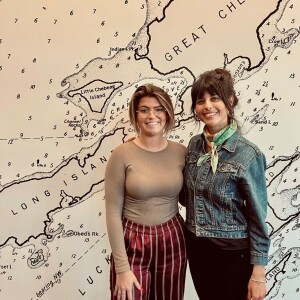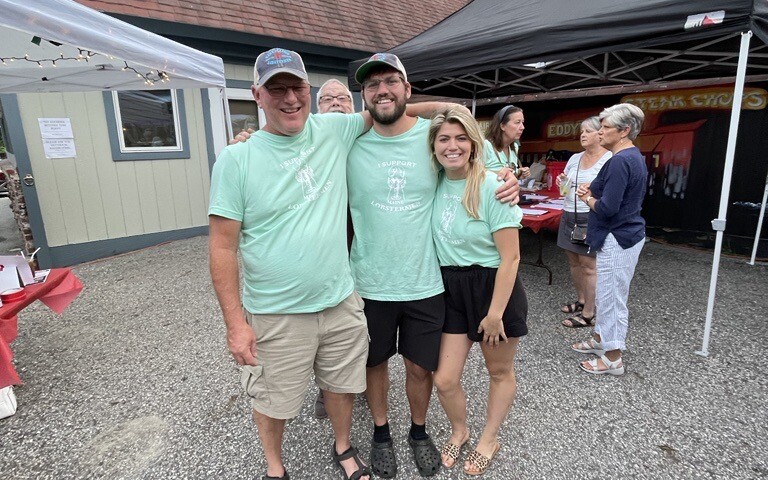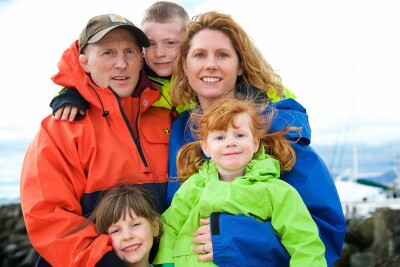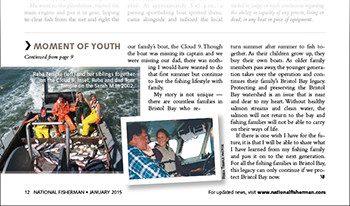Growing up in a fishing family showed me much more than a strong work ethic. It showed me fishermen feel the most at home on sea than on land. Fishing has been in my family for generations, and I have always seen firsthand the stewards that make up this industrious community. My great, great-grandfather was the first in our family to fish, and the tradition persisted on to my brother and me.
Though I grew up engulfed by the same fishing traditions as my brother, I fell in love with the ability to be an advocate for fishermen and their families. Both of us were inspired by the different aspects of what our father chose for his occupation. He has always fished predominantly for lobsters and would occasionally labor in other fisheries. Most of our dad’s onshore hours were spent advocating and fighting regulatory issues as a board member for the Maine Lobstermen's Association.
Once graduating college and moving back to the coast of Maine, I was motivated to take a position that would allow me to learn more about the policy and further aspects of the fishing industry with the ability to share my experience growing up in this community. After taking the position with National Fisherman and being able to connect with other fishing families, I have become inspired to unify this way of life among all the coasts.
I recently reached out to a few individuals who are married to commercial fishermen. Megan Waldrep, creator of the support group Partners of Commercial Fishermen, has been a cultured resource to help me better understand the draws to this way of life. (You’ll hear more from Megan in a bit.) Though I don’t share the exact perspective of Megan, and others who share the woes of sending off their spouse to the sea, I am able to share my perspective of growing up with a father and brother who did the same.
I connected with Ashley Green a while back about the Southeast king salmon troll fishery closure. We further discussed the heartache of the commercial fishing community in Alaska and how harvesters within the salmon troll fishery are small business owners who run a single vessel to provide for their family.
Similarly, on the Maine coast, all lobstermen are small business owners who work to live and primarily spend locally within the state. Year after year, I watched the anguish pour off my father as more regulations were put into place for one of the most sustainable fisheries in our country. Since the 1850s, Maine lobstermen have ensured self-regulation within their fishery to further create sustainability for the sake of stock and the ability to see their kids become just as passionate about this heritage. Maine lobster fishermen have persisted through many waves of change. To name a few, they’ve altered their gear to help protect the endangered Right Whale species, they have stayed involved in conservation efforts to make sure the fishery is continuously viable, and they have fought the federal government to protect surrounding species and save this critical Maine industry.
I have personally seen fishing communities get tunnel vision regarding their fishery. I cannot say I blame them for doing so when they are constantly bearing the weight of a heavy labor job, but also constant regulations and some terrible seasons. We often forget about what is happening on the other coasts, and this is something that we cannot keep ignoring. It should be a wake-up call.
On the coast of Southeast Alaska
Tyler and Ashley Green, a commercial fishing family, face the most distressing reality that the fishery that supports their family could be closed. On May 2, U.S. District Judge Jones submitted his decision adopted by a recommended order to suspend Southeast Alaska’s Chinook troll fishery. The closure was driven by the misguided claim that the Southeast’s troll fishery threatens Washington’s Southern Resident Killer Whale population.
[Editors' note: The federal Ninth District Court of Appeals issued a stay of the lower court decision that allows the troll fishery to open July 1.]
As a fisherman’s wife and a professional within the commercial fishing industry, Ashley fears for her family’s future. She drew out for me the decision that Judge Jones made and the impact that it has already begun to have on the community that relies on the king salmon troll fishery.
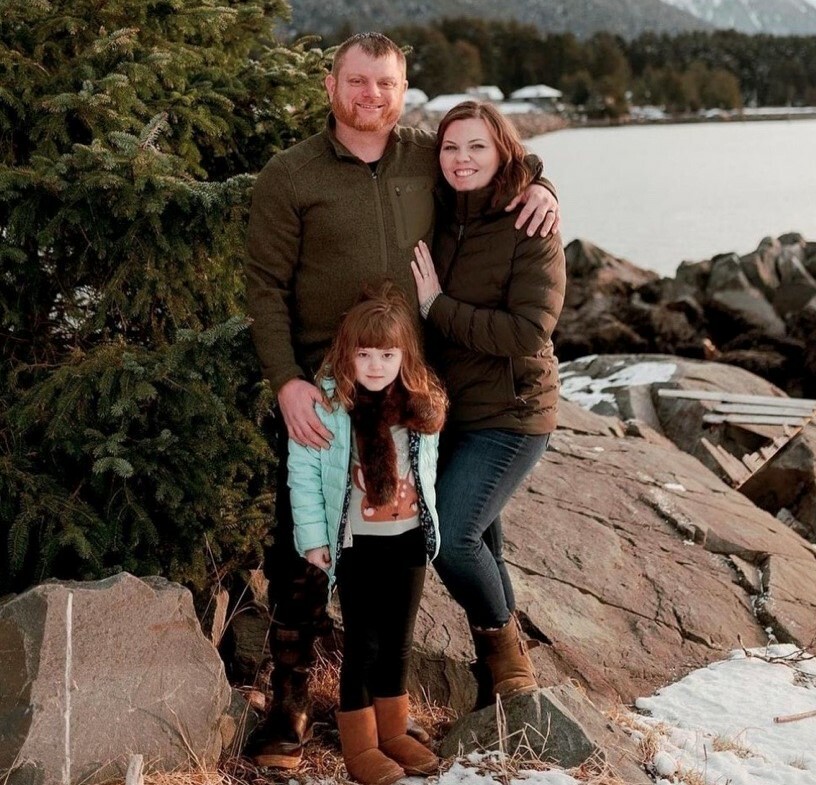
“The recommendation used this fishery as the scapegoat instead of reviewing all of the other leading issues, such as the demise of the water system that is clearly showing the results of over-expansion and poor management of protecting the streams and rivers within the watershed that feeds directly into Orca habitats.”
The troll fishery in Southeastern Alaska employs over 1,500 fishermen, with 85 percent of the troll permit holders residing in Southeast Alaska. Consistently it is one of Southeast Alaska’s top three most valuable fisheries.
“We’re left to wonder – how will we make up for the king opener?” Ashley says that when discussing the detrimental impacts this has on her community. “This endangers hundreds of families to default on their boat loans and mortgages. This community won’t survive without the economic impact of this fishery.”
The Green family shares the challenges of being an owner-operator and how this means you are technically a small business. Fishing families walk a fine line; they must be disciplined with their time and money but can also do what they love with the freedom to work on the water. Ashley shares with me the direct marketing techniques they have attempted over the years to sell directly what Tyler harvests.
“We go back and forth on whether it's worth the work, time, and most importantly, the stress. We put in this work because of the overhead costs of boat maintenance, payments, and cost to diversify the operation. But now, how can we diversify if we aren’t even able to catch fish? The unknowns are always scary, but it’s a given with this kind of job. But now we are just terrified because of the closure.”
Tyler and Ashley both grew up in Washington and are astonished that the state has let this issue vastly affect fisheries in Alaska, which will then directly impact families that run these owner-operator small businesses. Ashley further shares her concerns about the ecological impacts within the immediate environment of the Southern Resident Killer Whale population in Washington state.
She says, “These factors need to be addressed before working to shut down a hook and line fishery that is a vital organ to Southeast Alaska. What studies have been done to evaluate the impact of the approximate 42,000 king salmon that the fleet missed last year on behalf of the Killer Whale population?”
Within the waters of the Gulf of Maine
As my dad steams around the westside of Long Island, Maine I sit on the bow in the same spot I have claimed since he bought the boat when I was about four years old. Each lobstering season for my dad has always looked different, and I am used to there always being something new that these fishermen must face. Though the stress doesn’t seem like it would be worth it from the outside looking in, I know that my dad would never choose a different way of life, and I don’t say that lightly. Most people have careers that have been strictly built to support their family financially, but for my brother and my dad, our family has always revolved around fishing. Like many families that have been on this tiny island for generations, we all face the uncertainty of the future of the Maine lobster fishery.
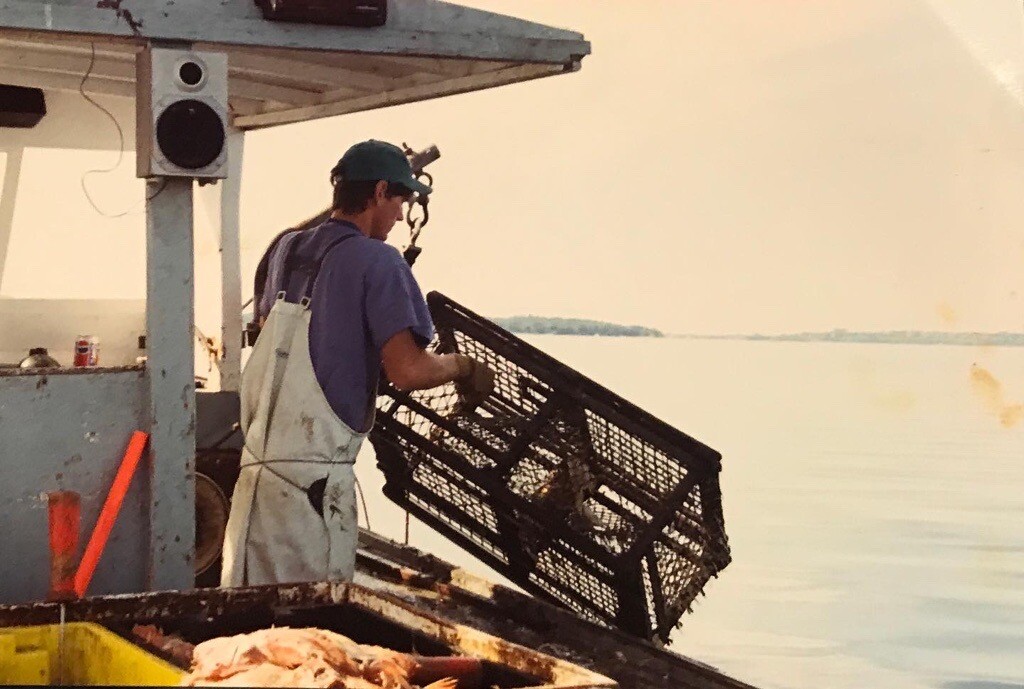
Like the Southeast Chinook troll fishery in Alaska, the lobster fishermen on our coast are all small business owners and operators on the water. Lobstering has supported my family since before I was born.
“What’s happening in Alaska could very well happen to us at any moment, and it’s terrifying that that is the reality we are living in. I have always pushed for sustainability among the fisheries I’ve harvested because I want my children to have this opportunity to share this way of life like I had.” My dad (Craig Stewart) shares. “I wasn’t always certain that things would be looking so good when I got all my gear back overboard, but I’ve always known that I wouldn’t want to be doing anything else.”
My dad has served on the board of directors for the Maine Lobstermen’s Association as well as the Maine Fishermen’s Forum for decades. He has always worked to advocate and give back to the fisheries that have granted our family a serendipitous way of life, even throughout the toughest seasons of making little to no money.
My brother, Cody, followed in his footsteps and fishes on his own boat, the F/V One More, on and offshore the coast of Maine, as well as holds a permit for the Northern Gulf of Maine Scallop season. My dad and brother, alike, started fishing out of rowboat punts at the age of eight by hand hauling their lobster traps close enough to shore that there were always eyes on them if they needed assistance.
The regulations to uphold a state lobster license in Maine have changed over the years. You must report landings and are allotted a certain amount of lobster traps under a student license until you are of age to apply for your commercial license. The commercial license allows you to fish 800 traps. To get into the state fishery without previously holding your student license, you must enter a waitlist, which nowadays is up to a decade and a half. Another option available to students about to graduate colleges is the lobstering apprenticeship program which can shorten the wait for a commercial license for younger generations.
With regulations and legal suits involving the endangered North Atlantic Right Whale, Maine lobstermen fear the same outcome as Southeast Alaska troll fishermen.
“We have been blamed for endangering a species that has never had a death involving Maine lobster gear and has had no entanglement in almost two decades. I understand the importance of keeping these mammals safe, but it isn’t fair to be facing regulation after regulation for an industry that has done all we can to self-regulate and ensure we are fishing as safely as possible.” My dad explained.
“To have both of my kids in the fishing industry is all I’ve wanted, and they have shown that they care about this community as much as myself. We have so many more battles and regulations to face in our industry, but to see us all persevering together over the past few decades is rewarding. Our fishing community up and down the coast is in this together, and so many Mainers have come together to host events and push to keep lobster fishery as sustainable as ever for generations to come.”
Going Down South
I was honored when Carli asked me to co-write this piece about Partners of Commercial Fishermen. POCFs are better known as “shoreside support,” the “backbone of the industry,” and the unsung heroes behind the catch. The nicknames are well earned, as holding down the fort, keeping the kids alive, and paying bills while their other half is somewhere that can’t be reached by phone is standard for many. Add the need to help in the boat yard, slang seafood, bookkeep, and advocate for a fishery as we do makes it an all-encompassing lifestyle. The thing is, POCFs are kind of expected to “do all the things” because no one else can (and many POCFs feel they must do it for free to help save money, but that’s a whole other topic.) It’s high time we celebrate all they do.
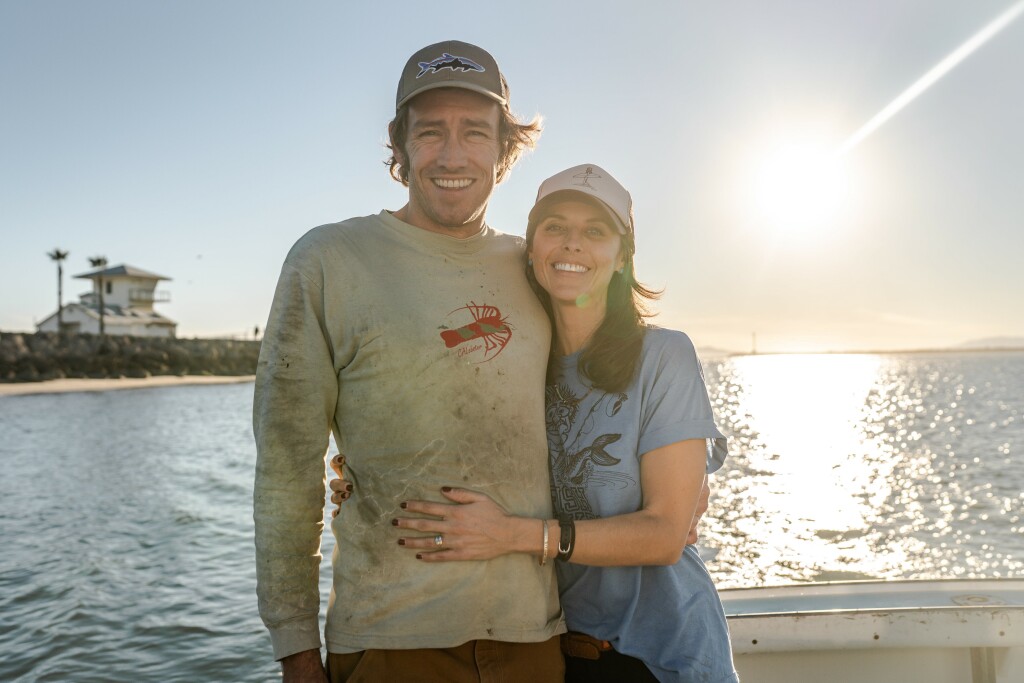
When the California spiny lobster fishery is done for the season, my husband Chris Dabney and I live in Wilmington, N.C., and there’s an oyster farm up the road that’s intrigued me for years. Now was the perfect time to get to know my Southern neighbors and the challenges they face on the Carolina coast.
N.Sea Oyster Co. is an aquaculture farm dedicated to raising craft sustainable shellfish that embodies the taste of North Carolina while maintaining a positive impact on the environment. Over email, POCF Alyssa MacNair shared about her life with her husband Conor, CEO and founding farmer. But first, let’s set the scene.
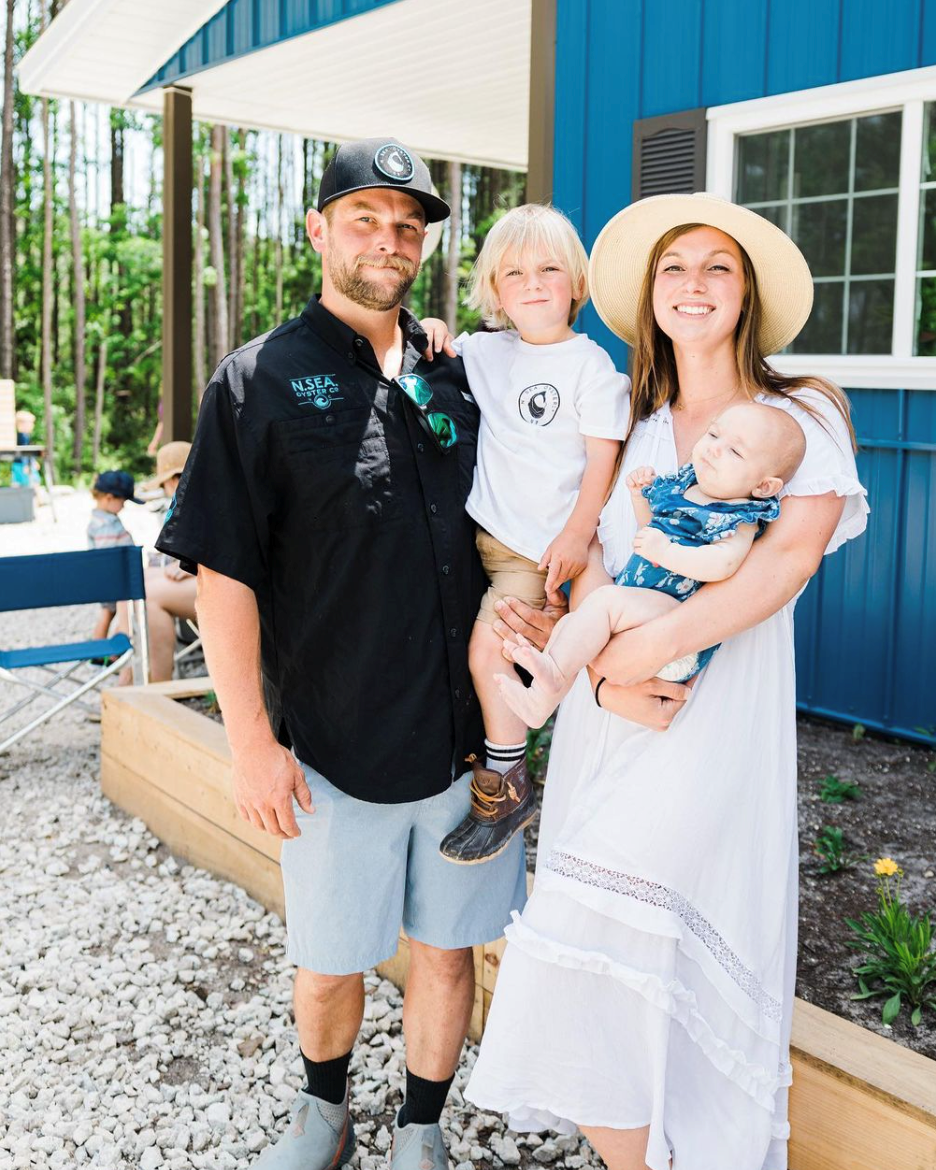
Alyssa and Conor harvest in the clear, turquoise waters of Hampstead, N.C., using a mix of traditional Australian and French oyster farming techniques. Oysters are washed eight to twelve times, then sorted and packaged by hand before they reach the market. “We grow millions of oysters that each filter 50 gallons of water per day,” Alyssa said. “Getting our oysters to the hands of top chefs around the nation is a passion of ours, and seeing others enjoy our hard work is rewarding.”
The farm’s home base and processing facility is called The Oyster Barn in Surf City, N.C. On weekends, the barn hosts a food service of freshly harvested oysters and fish caught by the local fishermen and prepared by locally renowned chefs. Oyster fans can visit the barn to watch the processing, purchase bushels of fresh oysters on the spot, or order directly from the website www.nseaoyster.co. (You can also follow them on Instagram @n.sea.oysterco.)
Like all in the commercial fishing industry, one of the most challenging parts for the MacNairs is running a business that relies on Mother Nature, especially during hurricane season; things like overdevelopment and runoff from heavy rainstorms can impact the oysters’ health. There’s also the government.
“Some agencies do not want to view us the same as agriculture and are making our lives more difficult by making us apply for hefty permits involving multiple agencies, making it near impossible to grow where, what, and how we need to,” Alyssa said. “I’m personally involved by being on the board of Oyster South, an organization dedicated to connecting growers, educators, and chefs to help spread information on oyster farming.”
Oyster South hopes to spotlight and expand the environmental and economic impacts of oyster farming in the South. With heightened regulatory processes weighing on small businesses, Alyssa and Conor fear the burden that has been placed on fisheries for aquaculture as well.
From East Coast to West Coast
Back in California, Lindsey Hoadley is a mom, entrepreneur, and wife to John Hoadley, a spiny lobsterman, urchin, and sea cucumber fisherman out of Santa Barbara. Lindsey runs the lifestyle brand Mothersun and the Captain and is currently rebranding their joint venture, thegoodcaptainco.com.
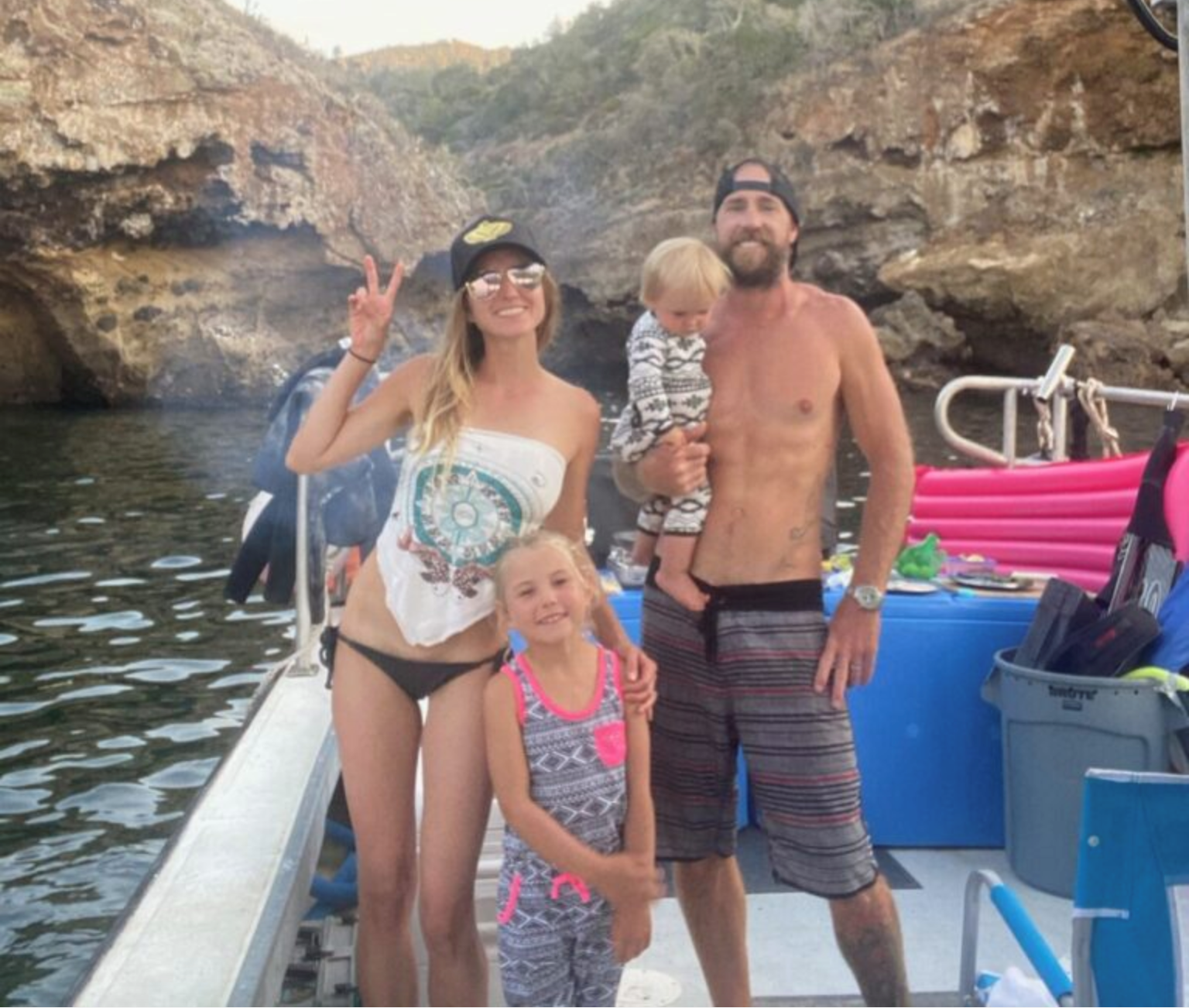
Lindsey’s contribution to the industry is “shoreside support,” which means building the fishing business from the home office, managing finances, and raising their two girls, Soleil, and Echo. In addition to fishing, John’s contribution goes beyond the boat. He holds the commercial fishing seat for the Channel Islands National Marine Sanctuary Advisory Council and is on boards for the California Sea Urchin Commission, the Commercial Fishermen of Santa Barbara, and the CA Sea Cucumber Divers’ Association. So, when I asked Lindsey about regulations and environmental challenges, she passed John the mic.
“This is a very in-depth question,” John said. “There are many problems with regulatory issues, but I believe that there is a changing of the guard, so to speak, and that there are some individuals on the regulatory/ enforcement side that are trying to work with fishermen and to create well-balanced and diverse fisheries.”
However, John says he has witnessed deception when it comes to boundaries being overstepped by the government. “The most important thing for a consumer to know is to buy local seafood, look into where your food is coming from, and ask servers at restaurants when you order,” John said. “And if possible, come down to a fisherman’s market and start to get to know your local fishermen/women. People will learn quickly that besides a few bad apples, we are the true stewards of the ocean. We have lots of answers for all people, the public, scientists, and the government if we are only included and asked. And listened too.”
Support from Coast to Coast
As we know, politics, regulations, and environmental impacts are hard to keep up with in each fishery, so my greatest contribution is growing the support group called Partners of Commercial Fishermen. I am honored to hold space for the people who keep the industry afloat and get little to no recognition. And, let’s be honest, as much as family and friends try, they can’t understand this lifestyle unless they’ve lived it.
What I want most is for POCFs to feel a sense of belongingness and know their roles in the commercial fishing community are extremely important. They are the glue holding the industry together, but it’s hard to feel like you belong when you don’t understand the language or get to experience it first-hand. (Not everyone is from a generational fishing family, and not everyone lives near a harbor.)
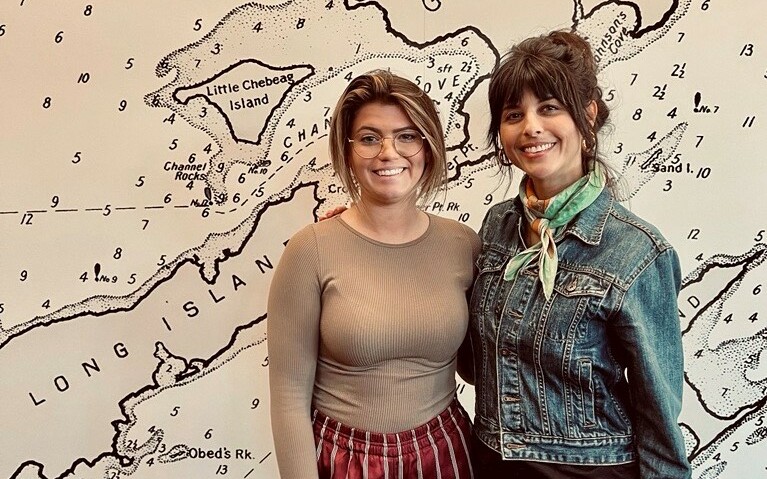
For that, I created a private forum for POCFs to connect with others worldwide who can relate, offer advice, vent, ask questions, learn from one another, and have a good laugh. We’ve even connected boats looking for deckhands and shared updates on what’s happening in our local fisheries. I want partners to feel empowered and not judged for having feelings about this lifestyle. The forum is a safe space and the only place on the internet where this type of community exists, which makes it extra special.
Bottom line, I hope all Partners of Commercial Fishermen and fishing families know their feelings are valid. There is a whole group of people out there that are here for them, and they are not alone! If you know someone who may benefit from this type of support, please send them to our community. We can help them feel connected and can be there for your loved one when you cannot. Fishermen can gift a membership to the forum through this link. We are waiting with open arms and can’t wait to meet your POCF!




